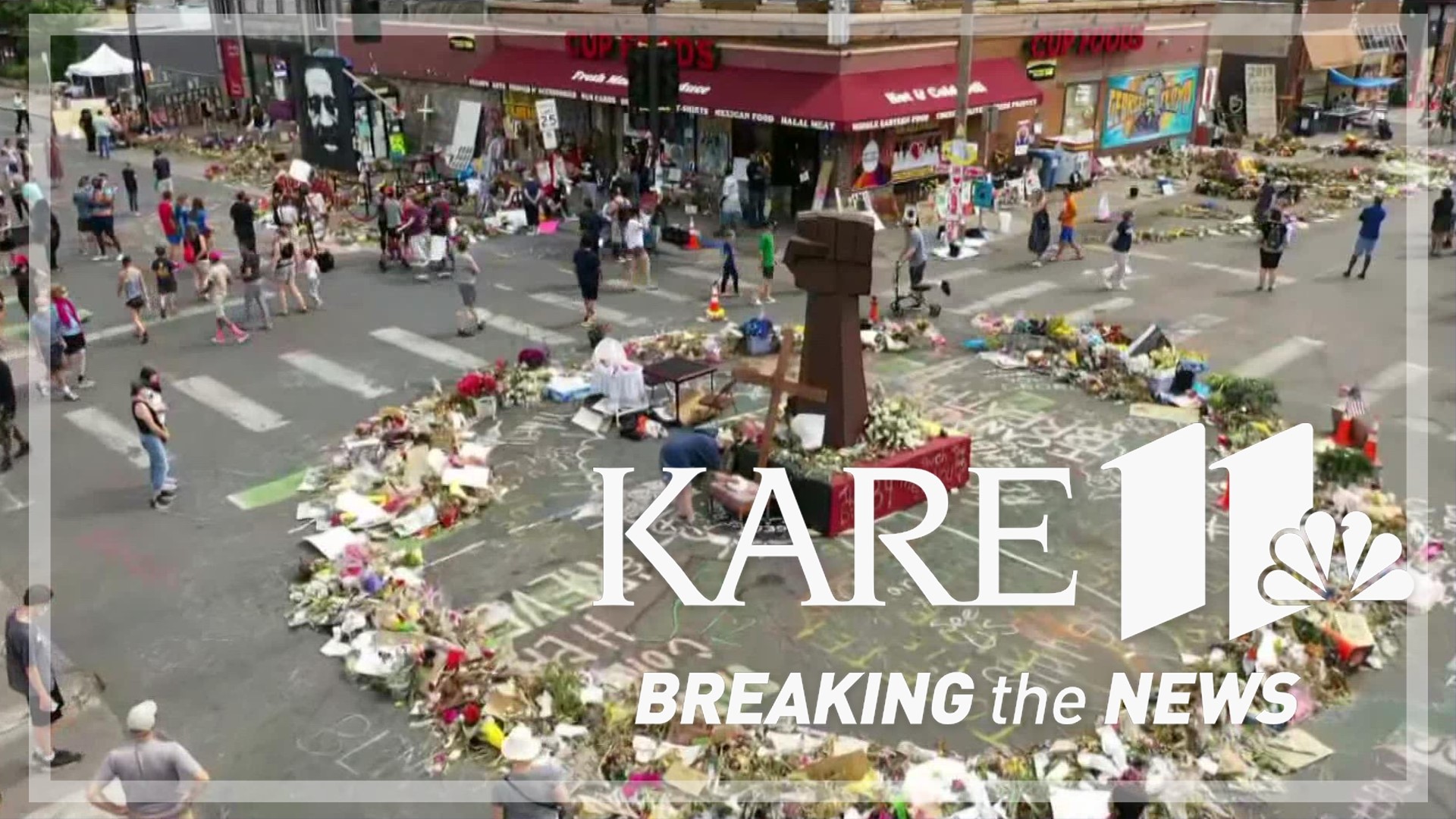MINNEAPOLIS — On Thursday, the Minneapolis City Council moved forward on an idea by the council president, Andrea Jenkins, to rename the area where George Floyd was murdered by a former Minneapolis police officer to "George Perry Floyd Square."
The council voted yes on taking the next step, now they're discussing with the community and stakeholders what those next steps will look like.
A group led by McKnight Foundation president Tonya Allen, wants to do the heavy lifting to transform us from what we were, and in ways still are, to what we will become.
"I think our job is actually to make the Twin Cities a place where George Floyd could have thrived, not where he died, right?" said Allen. "That's what we owe to his legacy is to remake this place."
And to remake it, she and others — including mayors, the governor and major business leaders — are working to aggregate $2 billion, and spend it building a Twin Cities we haven't been to yet.
"I think that the Twin Cities, and Minnesota in general, have a point to make, which is that we aren't defined by our traumas, where we became known as the epicenter of racial inequity," said Allen. "I actually think that we have enough resources, enough talent, enough leadership here so that we can transform our reputation to become the epicenter of racial opportunity."
And what would that epicenter need to include?
Affordable rental housing for nearly 24,000 people; 13,000 new, minority-owned businesses, 24,000 new job created by the BIPOC community and 45,000 new BIPOC homeowners.
Why aim this high? Because for decades, our community has some of the largest racial wealth gaps in the country.
The typical Black family in Minneapolis earns less than half what a typical white family earns. And homeownership among Black people is one-third the rate of white families.
"As a community, we know that we have pretty significant racial wealth gaps," Allen said. "And if we don't figure out as a community how to address those racial wealth gaps, and we know that we see the BIPOC community growing across our state, then we are undermining our prosperity. So this is really a play for the future."
A future where when we all do better, we all do better. Which is why the call is to every leader, every business and every philanthropist to join into one big movement.
"There is an African proverb that, 'If you want to go fast, go alone; if you want to go far, go together,'" Allen said. "That's the point we are trying, we got to go far."
The challenge is, if we all go it alone, we just don't have that much impact.
On Thursday morning, the group met to rally leaders and thinkers to rally and think, and spend together. Not one time, but over the next 10 years.
So it isn't just breaking ground one patch of land at a time — it's groundbreaking to change systemically.
"We can redesign it. We can change the rules," Allen said. "We can rewrite the rules so that everyone can have a different set of outcomes, and I think that's what we are trying to do with groundbreak, trying to rewrite the rules."
Watch more Breaking The News:
Watch all of the latest stories from Breaking The News in our YouTube playlist:

